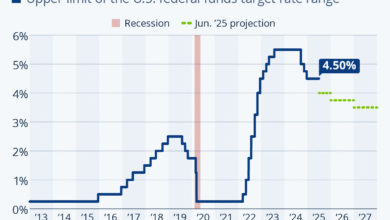Midday Stock Movers: CrowdStrike, Tesla, Dollar Tree Updates

In the fast-paced world of trading, understanding the movers of the day is crucial for savvy investors. Today, midday stock movers such as CrowdStrike, Tesla, Dollar Tree, and Thor Industries are drawing significant attention as they navigate fluctuating market conditions. The latest stock market news highlights CrowdStrike’s disappointing revenue forecast, which sent shares tumbling, while Dollar Tree faces challenges that may lead to a dramatic earnings drop. Positive performances from Thor Industries, which reported strong quarterly earnings, offer a contrasting narrative amidst the volatility. Investors must stay informed about these developments to make well-timed decisions in the ever-changing landscape of the stock market.
As we explore the midday shifts in stock valuations, it becomes evident that certain companies are pivotal in shaping market sentiment. Notable midday stock fluctuations today reveal insights into CrowdStrike’s unexpected financial outlook and Tesla’s ongoing struggles amid competition and geopolitical pressures. Meanwhile, the latest earnings updates from Dollar Tree and Thor Industries present a clear picture of how external factors affect retail and manufacturing sectors alike. For traders and analysts, tracking these midday stock movers not only provides clarity but also aids in forecasting potential future trends in the market. Keeping abreast of such corporate developments is essential for those looking to capitalize on investment opportunities.
Midday Stock Movers Analysis
During the midday trading session, notable stock movements highlighted market volatility, particularly for key players like CrowdStrike and Tesla. CrowdStrike faced a sharp decline of nearly 7% after its revenue forecast failed to meet analysts’ expectations, raising concerns about its growth trajectory in the competitive cybersecurity landscape. Investors are wary as the company projected a quarterly revenue between $1.14 billion and $1.15 billion, just shy of market predictions that anticipated at least $1.16 billion.
Conversely, Tesla saw a dip of over 3% amid disappointing May sales data, particularly in Europe where it suffered substantial losses. Declines of 67% in France and 68% in Portugal suggest a significant challenge for Tesla as it struggles with increasing competition in the electric vehicle sector. These midday stock movers emphasize the need for close monitoring of company performance indicators and broader economic factors that could impact investor sentiment.
CrowdStrike Update: Forecast Disappoints Investors
CrowdStrike’s midday trading performance stirred conversation among investors and analysts alike, as its latest revenue forecast removed a layer of confidence previously associated with the cybersecurity firm. With shares dropping nearly 7%, the company’s guidance below analyst expectations raised red flags about its market position and future profitability. Analysts had high hopes for the firm, considering it a leading player in cyber defense; this latest forecast may prompt a re-evaluation of those projections.
Analysts are now questioning whether CrowdStrike can sustain its competitive edge, especially as demand for cybersecurity solutions continues to rise amid increasing cyber threats. The company’s forward-looking caution points to possible challenges in maintaining growth amidst pressure from newer entrants in the market, reinforcing the necessity of strategic adjustments to meet evolving customer needs.
Tesla Analysis: Market Pressures Mount
Tesla’s recent performance continues to attract attention, particularly due to the alarming sales figures reported for May. A drop of over 3% in share price reflects broader challenges faced by the electric vehicle manufacturer, including intense competition and geopolitical pressures. The stark decline in European sales has raised concerns regarding Tesla’s ability to maintain its market dominance, prompting investors to analyze the company’s strategies moving forward.
Furthermore, the influence of external factors, such as political tensions and economic shifts in key markets, cannot be understated. As Tesla navigates these challenges, analysts suggest a potential need for diversification and innovation to enhance market resilience. Stakeholders are keenly watching developments in Tesla’s strategy, particularly in China, where competition is getting fiercer, and market conditions could dramatically reshape its operational landscape.
Dollar Tree Earnings: A Cautious Outlook
Dollar Tree’s midday stock performance reflected investor jitters as shares dipped 7% in response to dismal earnings forecasts. The discount retailer cautioned that its adjusted earnings per share could experience a significant drop of up to 50% year-over-year for the current quarter. This revelation was especially surprising given that analysts estimated only a slight decline of about 1.8%, suggesting that the firm may be grappling with unforeseen headwinds.
The company’s reference to pressures stemming from tariffs imposed during the Trump administration adds another layer of complexity to its financial outlook. As consumers increasingly seek value-oriented options amid rising inflation, Dollar Tree’s ability to adapt to changing market conditions will be pivotal in regaining investor confidence moving forward.
Thor Industries Performance: Positive Indicators
In contrast to the struggles of other companies, Thor Industries reported a commendable uptick of 3% in its share price, following an impressive third-quarter earnings report that exceeded expectations. With earnings of $2.53 per share and revenue of $2.89 billion, the recreational vehicle manufacturer showcased resilience in a fluctuating market, capturing investors’ attention with its robust performance.
This positive earnings release indicates a sustained demand for recreational vehicles as consumers prioritize travel and outdoor lifestyles post-pandemic. Thor Industries’ ability to outperform analysts’ forecasts reinforces its strong market position and showcases the company’s adeptness at navigating supply chain and production challenges that have affected many peers in the industry.
Asana and Guidewire: Divergent Outcomes
The midday trading session also saw diverging fortunes for Asana and Guidewire Software, with Asana experiencing a stark decline of more than 17% following disappointing guidance. The enterprise software company reported second-quarter adjusted earnings projections that fell short of investor expectations, leading to heightened scrutiny over its growth strategy and long-term viability.
In sharp contrast, Guidewire Software surged by 16% after revealing better-than-expected earnings for the third quarter. Reporting adjusted earnings of 88 cents per share and exceeding revenue estimates, the company demonstrated strong operational performance that is likely to attract further investor interest. This disparity in performance between the two firms underscores the volatile nature of the technology sector and the importance of consistent financial guidance.
Market Reactions to Economic Indicators
Stock market dynamics are significantly influenced by both company-specific news and broader economic indicators. The midday shifts observed in stocks such as CrowdStrike and Dollar Tree emphasize the interconnected nature of these influences. Economic trends, including inflation rates and consumer spending patterns, play a critical role in shaping company forecasts and investor sentiments.
Understanding these economic indicators enables investors to make informed decisions about their portfolios. Stocks in the tech and retail sectors, like CrowdStrike and Dollar Tree, are particularly sensitive to consumer behavior shifts, making ongoing economic analysis essential for predicting future stock movements.
Implications of Cybersecurity Trends
The cybersecurity sector, highlighted by CrowdStrike’s recent forecasts, is witnessing a surge in importance as businesses prioritize digital security. The implications of this trend extend beyond just tech firms; almost every industry is beginning to recognize the necessity of robust cybersecurity measures, thereby influencing investment decisions significantly. As cyber threats continue to evolve, companies that innovate and adapt in this space may find themselves at the forefront of growth.
Investors should monitor trends and developments within the cybersecurity arena closely, as the performance of related stocks like CrowdStrike can signal broader market movements. Additionally, as cyber breaches become more widespread, companies may increase their cybersecurity budgets, elevating the importance of key players in this industry.
Energy Sector Insights: Constellation Energy
Constellation Energy’s stock performance reflects market response to strategic shifts, including a recent deal to sell nuclear power to tech giant Meta Platforms. Despite a 3% decline in shares linked to a downgrade by Citigroup, the strategic partnership indicates potential for stable revenue streams in the future. Analysts suggest that focusing on sustainable, low-carbon power sources could eventually position Constellation favorably in the energy market.
The energy sector is evolving as companies like Constellation adapt to technological advancements and regulatory changes. Stakeholders are watching closely as the energy landscape shifts towards more sustainable practices. Partnerships that bolster renewable energy initiatives are likely to shape investor perceptions and influence market trends in this sector.
Frequently Asked Questions
What are the key midday stock movers in today’s market?
In today’s trading, notable midday stock movers include CrowdStrike, which has seen a decline of nearly 7% due to a revenue forecast that fell short of analyst expectations. Dollar Tree also faced a 7% drop as the company warned of a significant pullback in earnings per share due to tariff pressures. Conversely, Thor Industries experienced a 3% increase after reporting better-than-expected earnings, and Tesla shares fell over 3% amid declining sales in Europe.
How did CrowdStrike perform in midday stock trading today?
CrowdStrike experienced a challenging day in midday stock trading, with its shares down nearly 7%. The cybersecurity firm announced a revenue forecast of $1.14 billion to $1.15 billion for the current quarter, which is below analysts’ expectations of $1.16 billion. This miss has resulted in higher volatility for CrowdStrike stock today.
Why did Dollar Tree stock drop during midday trading?
Dollar Tree’s stock dropped about 7% during midday trading today due to a significant earnings forecast revision. The company indicated that adjusted earnings per share could decline by as much as 50% year-over-year, contrasting sharply with analysts’ expectations of only a 1.8% decrease. The impact of tariffs was cited as a primary factor affecting their earnings outlook.
What drove Thor Industries’ performance in midday stock trading?
Thor Industries saw its stock rise by 3% in midday trading after it reported earnings of $2.53 per share on revenues of $2.89 billion, surpassing analyst projections. This strong performance indicates solid demand for recreational vehicles, contributing to positive investor sentiment around Thor Industries today.
What is Tesla’s stock trend amid midday trading?
Tesla’s stock has been facing challenges, dipping over 3% during midday trading as recent sales data revealed a significant slump in the European market, particularly with a 67% drop in France. The stock has experienced a concerning decline of 17% overall in 2025 due to increasing competition and challenges posed by Elon Musk’s activities.
What were Asana’s midday stock movements and why?
Asana’s shares plummeted more than 17% during midday trading in response to the company’s disappointing forecast for the upcoming quarter. They reported weak guidance of 4 to 5 cents per share in adjusted earnings and revenues between $192 million and $194 million, which did not meet analyst expectations.
How did Guidewire Software perform in the stock market today?
Guidewire Software experienced a remarkable surge of 16% in midday trading after its fiscal third-quarter results exceeded Wall Street estimates. The company reported adjusted earnings of 88 cents per share and revenues of $294 million, thereby instilling confidence among investors and analysts alike.
What impact did the merger news have on Flowserve and Chart Industries in midday trading?
In midday trading, Flowserve’s stock fell over 4%, while Chart Industries experienced a decline of more than 6%. This negative reaction followed the announcement of their anticipated all-stock merger of equals, highlighting potential concerns among investors regarding the deal’s implications for both companies.
What challenges did Constellation Energy face during midday stock trading?
Constellation Energy’s stock dropped by approximately 3% following a downgrade from Citigroup, which moved its rating from buy to neutral. Additionally, the company announced a deal to sell nuclear power to Meta Platforms, but the terms were not disclosed, leading to market uncertainty.
Where can I find updates on midday stock movers and market trends?
Updates on midday stock movers and the latest market trends can be found through financial news websites, stock market platforms, and real-time trading apps. CNBC, Bloomberg, and financial sections of major newspapers are excellent sources for current stock market news and detailed analysis.
| Company | Stock Movement | Key Points |
|---|---|---|
| CrowdStrike | -7% | Revenue forecast lower than analysts’ expectations. |
| Dollar Tree | -7% | Adjusted EPS might decrease by up to 50% YoY due to tariffs. |
| Thor Industries | +3% | Positive earnings result beating expectations. |
| Tesla | -3% | Decline in European sales and increased competition. |
| Asana | -17% | Soft guidance impacting share price. |
| Guidewire Software | +16% | Surpassed earnings expectations in fiscal Q3 report. |
| Constellation Energy | -3% | Downgrade from Citigroup impacting stock. |
| Flowserve | -4% | Shares fell following merger news. |
| Chart Industries | -6% | Merger with Flowserve affecting share prices. |
Summary
Midday stock movers today feature significant fluctuations among major companies, including CrowdStrike, Tesla, and Dollar Tree, reflecting mixed market sentiments. Companies like Guidewire Software stand out with strong earnings, contrasting the decline seen in Asana and others. Investors should keep an eye on these midday stock movers to navigate the current trading landscape.




